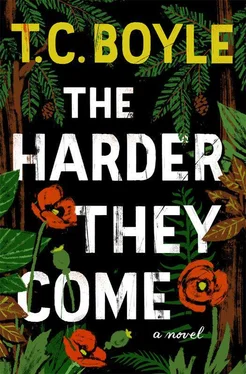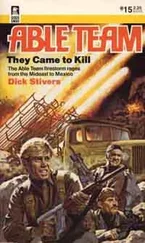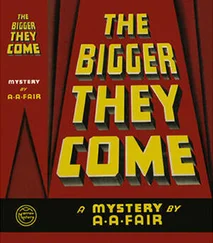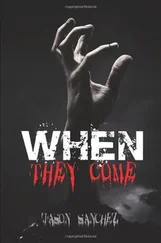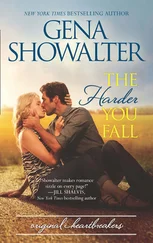He repeated himself, his voice honed and hard: “I said, kill the lights.”
She swung wildly through a turn and then looped back the other way, through the next one, her palms sweating and her eyes jumping at the road ahead. “I can’t,” she said, “we’ll go off the road. I can hardly see as it is—”
“Here,” he said, and he was thrusting something at her — what was it? Heavy plastic, slick glass: the night-vision goggles.
“I can’t — what are you doing?”
“Slow down,” he said. “Watch the road.”
And then they both froze, the sound of the siren riding up on them out of nowhere. A whoop, a scream. It jabbed right into her, shoved itself up under her flesh like a hypodermic scoured with acid. This was it, she knew it, she was done, doomed, everything she’d built in her life gone out the window — she wasn’t going to have to worry about being a slave to the system anymore because she was going to be a prisoner of it. In a jail cell. With what — a tray of mush and insta-food shoved through a slit in the door three times a day? She wanted to pull over, wait for the inevitable, but she didn’t. She just kept on driving, kept on going down, one turn, then the next, but where was the siren coming from — behind them or out in front?
There was a whoop, another whoop, then it faded, then whooped again. “Are they—?” she asked, but never got to finish the question because here came the sheriff’s dead-black cruiser hurtling up the hill in the opposite lane, lights flashing, one suspended moment as the thing rocked past them, Adam motioning with the gun and she furious and spitting “No, no!” at him, and then it was gone and vanished round the next bend.
“The pigs,” he snarled. “The fucking pigs.”
She didn’t feel as if she was driving anymore but sailing, and not across some calm picture-postcard bay, but into a dark maelstrom dragging her down to some darker place still. She stabbed at the brakes, hard, and the force of it threw them both forward — seatbelts, who needed seatbelts? — and he hit the windshield with a sudden heavy wet resonance she could feel like a blow to her own body, the car careening toward the trees, everything held in the balance before it caught on the hard compacted dirt of the shoulder and straightened itself out, and still she was driving and still they were going downhill.
When she could talk, when the words came back to her, stingy, squeezed, caught in her throat, she asked him if he’d hurt himself, was he okay, was he bleeding?
He didn’t answer. But she could feel him there at her side, glowering, outraged, all his jets on high. A minute passed. Two. The trunks of the trees flipped past like cards in a fanned deck.
“Here,” he said suddenly. “Stop here. Turn.”
She saw a dirt road rushing up on the right, a wide mouth of nothing cut between a ragged avenue of trees, and for once she did as she was told.
Later, after they’d rocked and swayed for what seemed like hours over a series of pits and craters and washboard corrugations, a campground appeared under the canopy of the trees, her headlights catching the glint of metal, cars there, half a dozen of them, parked in darkness, and he told her to pull over and shut down the engine. “Here?” she said. “Yeah, here.” She switched off the ignition and killed the lights and everything vanished. The darkness was absolute — they might as well have plunged down a mine shaft somewhere, no trace here even of the stars. And if there were campers out there, they weren’t sitting around campfires roasting marshmallows, not at this hour. They must have had tents, but in the instant before the lights went out she hadn’t seen any. Aren’t you afraid of him ? Christabel had asked.
Well, here was the test of it. And the answer? Yes and no. Yes, she was afraid he was going to do something crazy, like shoot off his goddamned gun, which he’d already proved fully capable of doing, but no, she wasn’t afraid to be there with him in the blackest depths of the blackest night she’d ever dreamed or imagined. He was right there beside her, breathing steadily. She could smell him, the sweat of him, the neat’s-foot oil he used on his boots, a faint chemical drift of the rum on his breath. He’d brought her here because that cruiser was going to turn around, he was sure of it, because their car was the only one on the only roadway through these hills, one way in, one way out, and now they were safe because no cop would ever think of looking for them here — no cop even knew it existed, she’d bet anything. She breathed out, breathed in. Closed her eyes and opened them again and it made no difference. All right. So they’d had an adventure and here they were, together, in the dark.
All the adrenaline had gone out of her or been reabsorbed or whatever was supposed to happen to it and she felt a deep peace steal over her. “What now?” she asked, though she already knew.
His voice came at her out of the void. “We sleep.”
“Just sleep?”
He didn’t answer but she could picture him wearing his little smirk, which was answer enough for her.
“You want to get comfortable?” she asked. “Like in the backseat?”
There was the sound of liquid sloshing around its container, liquid in motion. “You up for a hit of rum?”
“No, I don’t think so.” She was hot for him, hotter than ever, excitement running through her like a burn, but she had to ask him one more thing before she pulled her blouse up over her head and dropped her bra and let him nuzzle there like the child he was. “Adam?”
“Colter. Call me Colter.”
“What were you shooting at? There was nobody there. You weren’t even supposed to get out of the car.”
He was silent a long while. Finally, he said, “You accusing me?”
“No. I’m just, I just want to know what you were shooting at—”
“Hostiles,” he said, his voice as disembodied as if she were talking to him on the phone, long-distance, the words dropped down and filtered out of the buzz of the universe and nobody listening in but her and her alone. “I told you,” he said, “they’re everywhere.”
THEY WERE UP ON the forks of the Missouri, where the Jefferson, Madison and Gallatin rivers come together in what’s now Montana, trapping beaver and stacking up plew after plew because this was virgin territory, under control of the Blackfeet, and the Blackfeet had their own ways of dealing with trespassers, none of them pretty. Depending on their mood, they might cut off your fingers, one by one, then your toes, your ears, your lips. Or jam splinters of pine up under your flesh and set them afire or strip the skin from your limbs and hold the bleeding ropes of it up in front of your eyes so you could focus on what they were doing to you. And through it all you had to laugh in their faces to show how impervious you were to pain in the thin hope they’d put a swifter end to it. Cry out, whimper, whine, plead, and they’d take their time with you. And get creative too.
Colter had a single companion with him this time, a black-bearded trapper named John Potts who talked too much and ate too much but was tough enough and had his own traps, which cost ten dollars each — as much as you’d get for a hide — and were like stacked-up gold out there in the wilderness where there was no way to manufacture or repair them. They were heavy cumbersome things of iron and they had to be set out and held in place in the swift cold water by means of a stake driven into the bottom. The trappers would save the castor glands of beaver they’d killed and work them into a redolent paste that reproduced the scent the animals marked their territory with. They used this to cap a second, thinner stick that stuck up out of the water just high enough so that the beaver would have to step on the pan of the trap to boost himself up and get a sniff of it. Once the jaws closed on him, he’d dive and eventually drown.
Читать дальше
